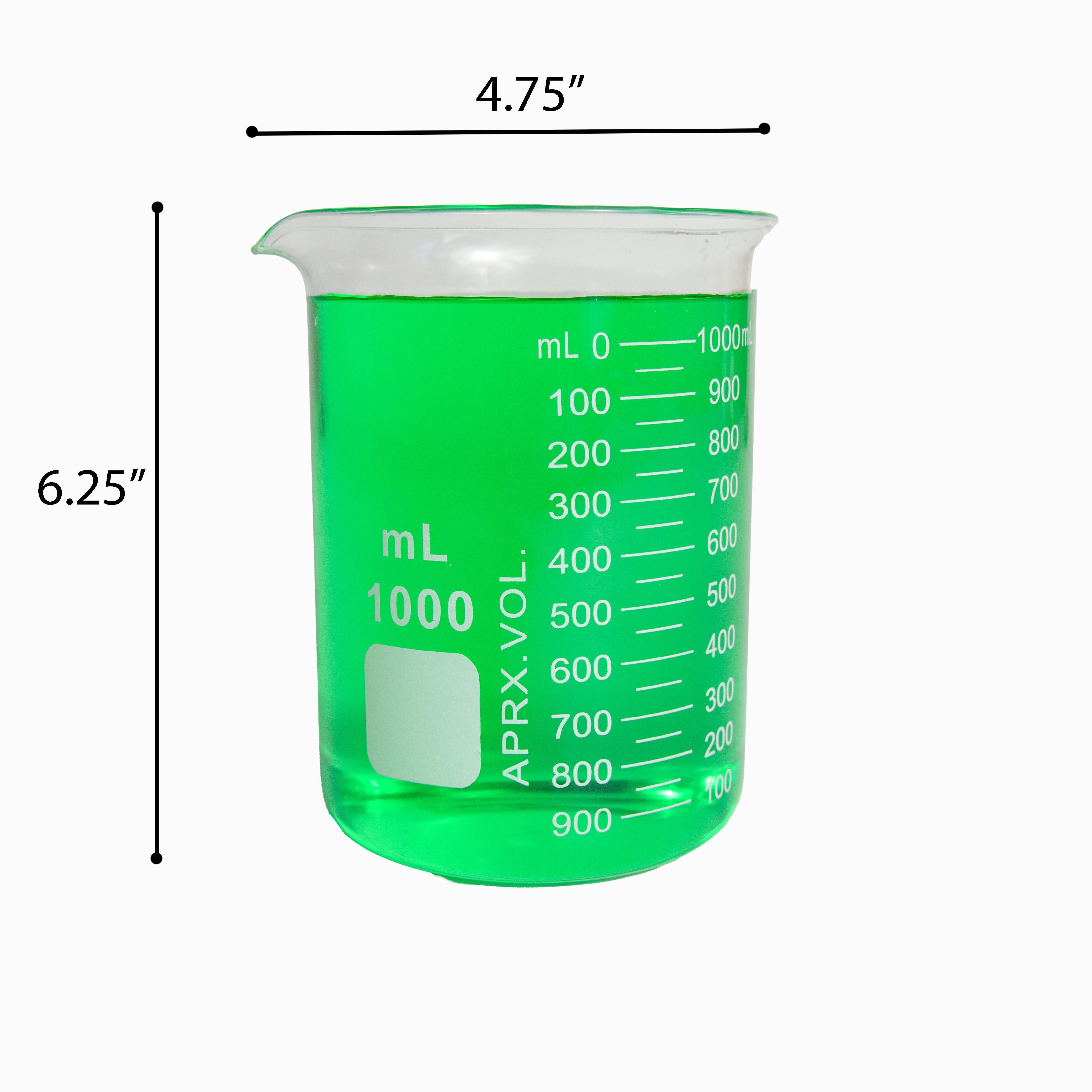Normally, when I write this blog, I aim to be a resource for you to use when trying to learn more about what is happening in the fields of science and education. I find what I think are some of the most interesting or thought-provoking recent events in science, and I give it my best shot to learn about the discovery so I can explain it to you in a way that is interesting and easy-to-understand. This week, I wanted to do something a little different. Since I visit a lot of resources when I am researching for this blog, staying up-to-date, and feeding my curiosity, I thought it would be a good idea to share some of those resources with you so that you could maybe find another place on this enormous internet to make your life a little more interesting and educational.
This list will be organized into four sections:
- Scientific Journals
- Scholarly Search Engines and Archives
- Websites and Blogs
- YouTube Channels
Feel free to search any of the headings above using “CTRL+F” (for PC) or “Cmd+F” (for Macs) to skip around to the sections that interest you the most.
Clicking on the header of each section in the list will link you to that source's website.
Scientific Journals:
New scientific studies, as you probably already know if you are reading this, are brought to the public eye when they are published in a peer-reviewed scientific journal. There are thousands of niche journals specializing in any specialty topic you can imagine, but there are a few that I like to frequent because they are well-respected in the industry and either (1) also act as a news source, (2) provide open access to some or all of the research they publish, or (3) they cover a broad range of scientific disciplines. Scholarly articles get deep into the nitty-gritty of new discoveries and are often behind a paywall (which can sometimes be avoided by directly reaching out to a head author and asking them for a copy, waiting out so-called “embargo periods” where they exist, or simply by subscribing to the journal if it’s one you plan to read regularly). This can make them almost impossible to fully grasp if they don’t fall into a type of science you know the technical details of, but, nevertheless, they are the cutting edge of science and are worth checking out if you have the time and curiosity.Nature
Nature is one of the largest and most easily-recognized scientific journals in the world. It was first published in 1869. Nature publishes research on a large range of scientific fields, which is becoming increasingly rare for journals. On top of publishing important research on just about any topic in science, a good deal of papers published are available to read for free, though not all are. They also write a wide array of editorial letters, perspective pieces, and accompanying explanations and commentaries on published papers. These help to fill any void felt by those wanting to avoid science hidden behind a paywall.Proceedings of the National Academy of Sciences of the United States of America (PNAS)
Much like Nature, PNAS is a large, multidisciplinary scientific journal that offers regular commentaries and articles as well. They have been publishing since 1915, and are a "delayed open access" journal, meaning that all research published through them is available for free after a 6-month embargo period.Public Library of Science (PLoS)
Starting in 2003 with PLOS Biology and growing to a total of seven journals today (all under the general catagory of biology and medicine), PLOS publishes under the "open access" philosophy, meaning that all research published by them is available for free to the public the day that it is released. Open access publishing is important to take note of, especially with Plan S being considered in the EU, as its underlying philosophy of free access to knowledge is becoming a larger force everyday in in the world of scientific publishing.Science
Like Nature and PNAS, Science Magazine is a large and prestigious multidisciplinary journal that also publishes news, op-eds, and commentaries on research. Much of their research is available with a subscription only, but their news and commentary sections are interesting enough to make this a good place to stay up-to-date with science. Articles of "significant public health" importance are sometimes available for free, and research published after 1997 is available for free to registered users after a 1-year embargo.
Scholarly Search Engines and Archives:
Aside from having some scientific journals that you can frequent, there are also numerous journal archives that collect scientific papers into a searchable database. These are useful when researching a subject you have a technical knowledge of and want to know more about, but not so useful for monitoring the recent news in the world of research.arXiv
arXiv, unlike others on this list, publishes "preprints," which are moderated, but not fully peer-reviewed, scientific papers. They archive papers in the fields of mathematics, physics, astronomy, electrical engineering, computer science, quantitative biology, statistics, mathematical finance and economics. They are open access and operated and owned by Cornell University.Education Resources Information Center (ERIC)
ERIC is a large digital archive of research and information regarding education. It is sponsored by the Institute of Education Sciences within the U.S. Department of Education. They claim to be primarily used by five main user groups: "academics, researchers, educators, policymakers, and the general public." Search results on ERIC can be narrowed down to only include research available for free.Google Scholar
Google Scholar has grown to be estimated (since Google doesn’t publish its size) as the largest database of scholarly literature on the internet since it launched in 2004. If you are planning on doing a quick look into the variety of scholarly work on a subject without first knowing a more specialized database or journal, Google Scholar is a great place to start looking. Keep in mind, it’s large size can lead to you being overwhelmed with content causing good research to be buried, or poorly-vetted research can find its way into your work.
NASA Technical Reports Server
This database from NASA is a large, comprehensive collection of aerospace research, papers, patents, reports, and media created or funded by NASA. If you are looking to find any technical information about science in space, look no further.
PubMed
PubMed is what you should use when searching the MEDLINE database of life sciences and biomedical information maintained by the U.S. National Institutes of Health (NIH). Many full-text articles are available for free on the database.Websites and Blogs:
Now that I’ve covered my bases as for where you can find detailed scientific research, I wanted to provide sources that provide more digestible scientific content that can be used to teach or satisfy the curiosity of those who love, for example, space but don’t have a degree anywhere close to astronomy (like me). This section of more layman- and classroom-friendly resources covers websites and blogs (much like this one) that you can add to your repertoire of great science sites.Bill Nye
Bill Nye's website is a well-designed place to find much of the wonderful scientific educational content Mr. Nye has brought us over the years. There are episode guides for Bill Nye The Science Guy divided by topic, and there are also numerous demos that can be done at home. This site is great for those looking to find supplemental explanations for lessons in the classroom.
Bob’s Spaces
Written and maintained by retired science teacher, planetarium director, and current writer and collaborator with the NSTA, Bob Riddle, this blog is a very in-depth write-up of what you can see right now in the night sky. This blog is great for those amateur astronomers interested in learning more about space.
HowStuffWorks
Published as a companion to the TV Show of the same name, this website provides visual aids and explanations into the details of how every day phenomena function. It can satisfy the curiosity in people, or be used as a teaching aid to jump-start a phenomena-based lesson.
NASA
The website for the U.S. National Aeronautics and Space Administration, better know as NASA, is a great place to learn about what is happening on the forefront of aerospace research. They publish press-releases here whenever they make big announcements, and they also maintain detailed and descriptive pages for all of the missions they are a part of. Visit this site to keep up-to-date with our studies of the stars and to learn more about the projects we have going on up there.
National Science Foundation – Classroom Resources
The National Science Foundation is an executive agency of the United States government that was set up by Congress in 1950 "to promote the progress of science; to advance the national health, prosperity, and welfare; to secure the national defense..." They claim to "support for all fields of fundamental science and engineering, except for medical sciences." This page maintained by them is a great resource for teachers and parents to use for creating lesson plans or activities. Subjects are divided by the following topics: “Arctic & Antarctic,” “Astronomy & Astrophysics,” “Biology,” “Chemistry & Materials,” “Computing,” “Earth & Environment,” “Education,” “Engineering,” “Mathematics, “Nanoscience,” “People & Society,” and “Physics.”
NSTA Blog
The National Science Teachers Association (NSTA) is a large organization with over 50,000 members including science teachers, supervisors, administrators, scientists, and business leaders. Their blog is a fantastic place to read about teaching science, experiments for the classroom, science teacher events around the country, educational research, testimonials about various teaching strategies, and more.
Science Toys
This cool website contains instructions on how to create a lot of simple and interesting toys that can be used to cheaply showcase various scientific principles. Teachers may find this to be an interesting resource for making cheap and interactive classroom activities.
ScienceNews and ScienceNews for Students
ScienceNews and ScienceNews for Students are great publications to follow for recent science news. They offer news stories as well as several regular specialized blogs. As the names suggest, they have two sites: one tailored to a younger audience and their regular publication.
Space
Space.com is an excellent, detailed blog on space exploration news. They offer great layman explanations of the work being done by a wide-array of groups currently exploring space, including NASA, SpaceX, and other international space agencies and companies.
Teachers Try Science
Teachers Try Science is an awesome website designed to be a resource for science teachers. They offer tutorials for various teaching strategies, as well as numerous lesson plans that conform to the Next Generation Science Standards (NGSS).
YouTube Channels:
YouTube, if you haven’t heard, is more than just a place for millennials to share funny cat videos. It has grown into a gigantic multinational video sharing service that is overflowing with high-quality user-generated video content covering every topic you can imagine. Their selection and scope of educational material is staggering, and it is a resource that curious students, lovers of knowledge, and teachers cannot afford to ignore as a rich resource. Below is an assortment of scientific educational YouTube channels, ranging from dedicated YouTube businesses who churn out full-blown lesson series to independent creators wanting to share their passion for science to the world.
CrashCourse and Crash Course Kids
CrashCourse and Crash Course Kids are educational YouTube channels that were started by the YouTube giants, the VlogBrothers, Hank and John Green. CrashCourse creates lesson series on all kinds of topics (not solely science related) that are intended for use in the classroom, but are still entertaining and interesting for people to watch on their own time. Science courses include "Computer Science." "Astronomy," "Anatomy & Physiology," "Ecology," "Biology," the "History of Science," "Engineering," "Chemistry," and more. There are also courses on topics relating to history, literature, media literacy, and more.
Check out the first video in CrashCourse's ongoing "History of Science" course:
Check out the first video in Crash Course Kids's series on space science and the sun:
The Khan Academy
The Khan Academy is a non-profit organization with the aim of providing a free quality education online. Their YouTube channel contains hundreds of their lessons for free. Though they are a great source for science lessons in engineering, chemistry, biology, and more, they also provide lessons covering topics like test prep, finance, the humanities, and math. This is a great place to look if you are a student who needs a little supplemental explaining when learning a topic.
Check out this video below in which they teach how the tilt of the earth causes seasons:
Kurzgesagt - In A Nutshell
Kurzgesagt is a beautifully animated vlog that releases though-provoking video essays on scientific topics every couple of weeks. This is one of my personal favorite YouTube channels, as their content never ceases to make me think about things in fresh and entertaining ways.
Check out this great video they put out on the Fermi paradox, or the paradox that questions why we haven't yet found alien life out there:
PBS Space Time
This channel from PBS dives deep into many space related discoveries and conundrums. It can get technical, but it is presented in an interesting enough way for laypeople to gloss over the technical details while learning more about the cosmos. Space-nerds will love this channel.
Check out this mind-bending video discussing the nature of space and time:
Real Engineering
Real Engineering releases several video essays a month that take detailed looks into scientific news stories and problems from a scientific engineering perspective.
Check out this cool video they released on the topic of terraforming the Sahara desert:
Seeker
Seeker is a regular science vlog that aims to put out easily digestible videos that explain events currently developing in the world of science. They cover almost every topic you can imagine, so long as the creators of the show find it interesting. Though most videos they put out are short, ranging from 3 to 10 minutes, they will occasionally do long-form interviews with scientists or release medium-length videos (10 to 20 minutes) that delve into fun questions that curious people might already be wondering in the backs of their heads.
Check out this video they released explaining an interesting series they did chronicling swimmer Ben Lecomte's swim across the Pacific Ocean. Along the way, an accompanying team of scientists logged data Ben was able to collect, and Seeker came along for the ride.
SmarterEveryDay
SmarterEveryDay is the science vlog run by science communicator Destin Sandlin. Sandlin covers any topic related to science that he finds interesting. His channel puts out a lot of high-speed camera work as well, which presents science from an interesting perspective.
Check out his recent video examining how a whip breaks the sound barrier:
The Spangler Effect
The Spangler Effect is the vlog channel for well-known science communicator Steve Spangler. On his channel, you will find hundreds of cool DIY science projects that can be used to display phenomena at home and in the classroom.
Check out this recent video he released that covers a levitating paper clip experiment:
Tyler DeWitt
Tyler DeWitt's YouTube channel is dedicated to one specific topic: chemistry. His videos are a great resource for anyone struggling with tricky chemistry concepts. Students may find this to be a great resource for help with their homework.
Check out the first video in his "Structure of the Atom" series below:
Veritasium
Veritasium is a fun science vlog run by Derek Muller that addresses topics in science that are sometimes topically relevant and sometimes just plain interesting. Muller interviews scientists and researchers to look into phenomena that laypeople may find intriguing but don’t understand the mechanics of. This vlog is a consistent scientific look into all things that have you scratching your head.
Check out this awesome video he released recently on the phenomenon of microwaved grapes creating plasma:
Conclusion:
I hope I have provided you with some new resources for adding science to your life. These sources should provide a good foundation for scientists, students, and teachers to use for teaching, studying, and quenching the thirst for knowledge.
Do you have any great sources that you use that aren't on this list? Please share them in the comments section below!
Written By: Jacob Monash












11 comments